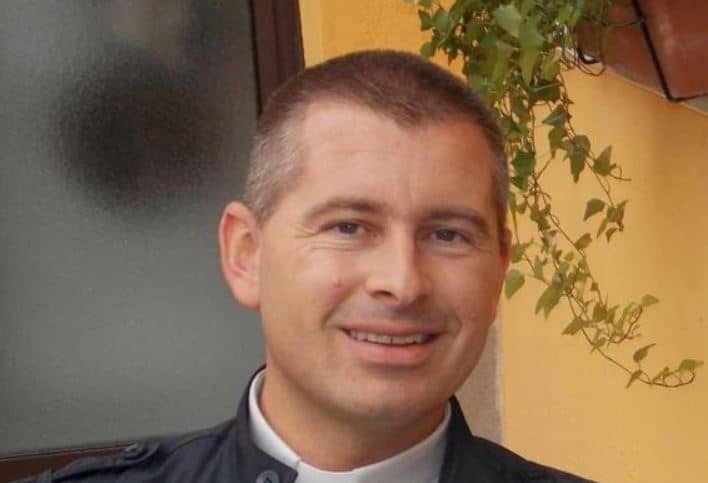Even though euthanasia has been legal in the Netherlands since 2002, many questions still arise as to how far doctors are allowed to go. And now for the first time in Dutch history, a doctor is on trial after performing euthanasia on a woman suffering from severe dementia, who may have had second thoughts about wanting to die.
The case clearly shows why euthanasia is such a difficult legal question. The Dutch catholic weekly Katholiek Nieuwsblad spoke to three Christian experts about this unique case.
In the Netherlands, euthanasia is strictly defined as “the active termination of life at a patient’s voluntary and well-informed request,” according to the Royal Dutch Medical Association. And although a 74-year-old woman had earlier written a living will asking for euthanasia in the event she would end up in a nursing home, a doctor is now on trial after performing euthanasia on her in 2016, when she was already suffering from severe dementia. The trial started on Monday in the Hague. Prosecutors say she is guilty of murder, but are not seeking punishment for the 68-year old doctor.
What happened?
Shortly after a woman was diagnosed with dementia, she wrote down a living will in which she stated that she wanted to make use of the legal right to “have euthanasia performed on me when I’m still somewhat mentally competent and no longer able to live at home with my husband.” A year before her death she drew up a revised dementia clause, stating: “I want to make use of the legal right to have euthanasia performed on me when I myself think the time is right.”
Seven weeks before she died, the woman was placed in a nursing home. The doctor now on trial decided together with the woman’s husband to perform euthanasia on her, without asking her explicitly if she still wanted to die. According to the prosecutors, the woman, after being placed in the nursing home, gave “mixed signals” about wanting to die.
When the day came to end the woman’s life, a sedative was put in her coffee. When she lost consciousness and didn’t respond to pain stimuli anymore, the doctor administered a dose of a lethal drug. To the doctor’s surprise the woman then woke up and had to be held down by family members to make sure the rest of the lethal drug could be administered.
According to the prosecutors, the doctor had good intentions and doesn’t deserve to be punished. They are of the opinion, however, that the now retired doctor should have spoken with the patient about her wish to die. The doctor states that this would have been pointless, since the patient was already suffering from severe dementia and was incapacitated.
The case revolves around the debate over how doctors should deal with euthanasia in the case of a patient who is incapacitated but can still communicate a desire to live, contrary to an earlier living will made by the patient.
Moral theologian: ‘It’s astonishing that prosecutors are not seeking punishment’
“The doctor didn’t sufficiently ascertain herself of the patient’s consistent will to have euthanasia performed on her,” said moral theologian Lambert Hendriks. “The conclusion has been drawn that this case is not about euthanasia, but about murder. When the judge says that this can only be called a murder case, it’s astonishing to me that they’re not seeking any kind of punishment. It’s clear that things have not been done as they should have been done [by the doctor]. I would of course also like to state that no form of euthanasia is appropriate.”
Hendriks said this particular case, however, “is even more distressing, because the fact that the very wide-ranging law on euthanasia has not been respected, will have no consequences.”
“The most remarkable thing about this case is that the conclusion has been drawn that someone has acted carelessly, but the doctor’s good intentions make up for everything that she has objectively done wrong. In everyday life you wouldn’t accept such a way of dealing with each other,” he said.
Professor of medical ethics: ‘The prosecutors are right in calling it murder’
“It’s a delicate issue to use the term murder, but there is no other option,” says Theo Boer, professor of medical ethics at the Protestant Theological University of Groningen. “There is no other word for the conscious intention of the offender to kill somebody, a killing that shouldn’t have happened. It’s very unpleasant for the doctor in question, but from a legal standpoint it’s the correct term.”
Boer also said he thinks the prosecutors were correct in bringing this case to court.
“It shows that parliament imposed an excessive burden unto us when they passed this flawed law in 2001. The stipulation that a written living will may replace an oral one, should never have been put in the law in this way. We urgently need a court ruling on this matter. I hope such a ruling will state that euthanasia may not be performed on people who don’t know what’s going on,” said Boer.
Christian Patients Association: ‘We are creating a culture of death’
“Finally, a case has been brought to court, after a couple of questionable cases being closed,” said Diederik van Dijk, director of NPV, the Dutch Christian patients’ association.
“The boundaries of the law on euthanasia have been pushed forward in recent years. The law was originally meant for the most severe cases. But now we see that euthanasia is being performed on utterly defenseless people who don’t have a clue about the fact that they are being injected with a lethal drug,” he said.
“It’s a slippery slope and I find it terrifying. In our society we are creating a kind of culture of death. The current law can be explained in different ways. It would be a good thing if, as a result of a court ruling, we would have a better definition of a living will and what a doctor should try to discuss with his or her patient,” van Dijk added.
This article was translated for Crux by Susanne Kurstjens-van den Berk.
Crux is dedicated to smart, wired and independent reporting on the Vatican and worldwide Catholic Church. That kind of reporting doesn’t come cheap, and we need your support. You can help Crux by giving a small amount monthly, or with a onetime gift. Please remember, Crux is a for-profit organization, so contributions are not tax-deductible.















